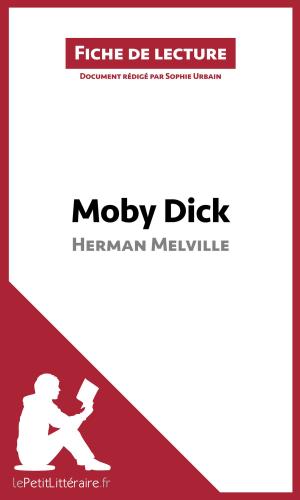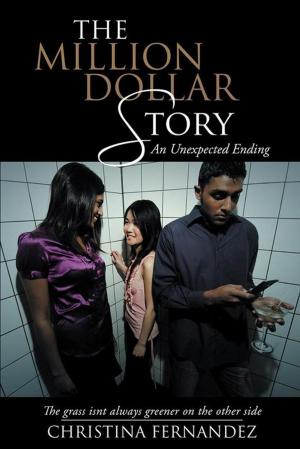| Author: | Frederic Colier | ISBN: | 9781628480054 |
| Publisher: | Books We Live by | Publication: | May 28, 2013 |
| Imprint: | Smashwords Edition | Language: | English |
| Author: | Frederic Colier |
| ISBN: | 9781628480054 |
| Publisher: | Books We Live by |
| Publication: | May 28, 2013 |
| Imprint: | Smashwords Edition |
| Language: | English |
The Playground is the Thing:
"Why did you bring me here? To a place like this?" asks the bewildered Kate while trapped in the conceptual hopscotch of Frederic Colier’s relentless imagination. As moral outrage resurfaces in our overtly self-conscious Look-Forward-In-Angst generation, it becomes apparent that our intellectual community is in dire need of a playground – more specifically, Colier’s Playground For Talking Heads. Recently published by Luminous Press, this collection of 5 one-act plays comes complete with a merry-go-round of power games, a playing field of characters and concepts, and a sea-saw teetering between inter-personal conflict and social issues. As an oasis of bold insight amidst a theatrical landscape that is otherwise replete in PC rhetoric, strewn with stylistic devices and littered with oblique references, Playground proves an indispensable resource. It is a fertile world of human transformation, a tersely dramatic cluster of social concerns peopled by fragmented lives. In short, the sensibility of Playground manages to resurrect the dramatic play till it resounds with its original verb-like connotation.
From the Lanford Wilson-like monologue of Firedamp - where a character’s futile desperation surfaces as he tries to cajole his supposedly apathetic partner into leaving with him only to discover that it is he himself who has been left behind - to the darkly David Rabe-like torments of Heartbreak Tango (replete in lines like "You thought you were so clever telling me about your childhood memories, hoping I'd reveal something about mine. I knew right away what you were up to with your little regrets"), Colier’s aperçus resonate with contemporary malaise. His is a sandbox where domestic violence has global repercussions, where minor fetishes each have their grand counterparts. As the mother in Sharing Circle succinctly notes "I wouldn't let him (your father) touch me to act out his rage. That's why he built this empire. And this is why I have to sell it."
Like Bernard Marie Koltes who employed theatre as a forum for cross-cultural exploration, Colier follows a minor character from his own Heartbreak Tango and delivers us into the idiosyncratic realm of The Undertaking – a play where an otherwise archetypal hooker swings airborne in effortless repartees like "What keeps petty criminals petty is their guilt". This, while The Proposal enlists characters ordinarily found in an Ayckbourn comedy to slide down the slippery length of a horror genre’s plot line. If the anti-thriller twist at the end is indicative of anything, it is not so much that our society shies away from visceral forms of evil but that each of our urbane maneuver’s to sublimate our tendencies becomes an atrocity in its own right.
But whether the reluctantly optimistic inhabitants that slide, swing and jump rope through Fredric Colier’s mind remind one of characters by Eugene O’Neill, Ariel Dorfman, or even novelist Martin Amis is not the issue. Instead, it is their respective worldview that matters, that eclectic playground that each of them forms in his head. Though one of the character’s says "My perfect ending is everyone's perfect ending", it is obvious that for Colier this collection is no more than a creative career’s perfect continuation. As uncluttered spots from which to view the rest of our society are concerned, Playground for Talking Heads is bound to have heads both talking and turning for a very long while.
The Playground is the Thing:
"Why did you bring me here? To a place like this?" asks the bewildered Kate while trapped in the conceptual hopscotch of Frederic Colier’s relentless imagination. As moral outrage resurfaces in our overtly self-conscious Look-Forward-In-Angst generation, it becomes apparent that our intellectual community is in dire need of a playground – more specifically, Colier’s Playground For Talking Heads. Recently published by Luminous Press, this collection of 5 one-act plays comes complete with a merry-go-round of power games, a playing field of characters and concepts, and a sea-saw teetering between inter-personal conflict and social issues. As an oasis of bold insight amidst a theatrical landscape that is otherwise replete in PC rhetoric, strewn with stylistic devices and littered with oblique references, Playground proves an indispensable resource. It is a fertile world of human transformation, a tersely dramatic cluster of social concerns peopled by fragmented lives. In short, the sensibility of Playground manages to resurrect the dramatic play till it resounds with its original verb-like connotation.
From the Lanford Wilson-like monologue of Firedamp - where a character’s futile desperation surfaces as he tries to cajole his supposedly apathetic partner into leaving with him only to discover that it is he himself who has been left behind - to the darkly David Rabe-like torments of Heartbreak Tango (replete in lines like "You thought you were so clever telling me about your childhood memories, hoping I'd reveal something about mine. I knew right away what you were up to with your little regrets"), Colier’s aperçus resonate with contemporary malaise. His is a sandbox where domestic violence has global repercussions, where minor fetishes each have their grand counterparts. As the mother in Sharing Circle succinctly notes "I wouldn't let him (your father) touch me to act out his rage. That's why he built this empire. And this is why I have to sell it."
Like Bernard Marie Koltes who employed theatre as a forum for cross-cultural exploration, Colier follows a minor character from his own Heartbreak Tango and delivers us into the idiosyncratic realm of The Undertaking – a play where an otherwise archetypal hooker swings airborne in effortless repartees like "What keeps petty criminals petty is their guilt". This, while The Proposal enlists characters ordinarily found in an Ayckbourn comedy to slide down the slippery length of a horror genre’s plot line. If the anti-thriller twist at the end is indicative of anything, it is not so much that our society shies away from visceral forms of evil but that each of our urbane maneuver’s to sublimate our tendencies becomes an atrocity in its own right.
But whether the reluctantly optimistic inhabitants that slide, swing and jump rope through Fredric Colier’s mind remind one of characters by Eugene O’Neill, Ariel Dorfman, or even novelist Martin Amis is not the issue. Instead, it is their respective worldview that matters, that eclectic playground that each of them forms in his head. Though one of the character’s says "My perfect ending is everyone's perfect ending", it is obvious that for Colier this collection is no more than a creative career’s perfect continuation. As uncluttered spots from which to view the rest of our society are concerned, Playground for Talking Heads is bound to have heads both talking and turning for a very long while.















